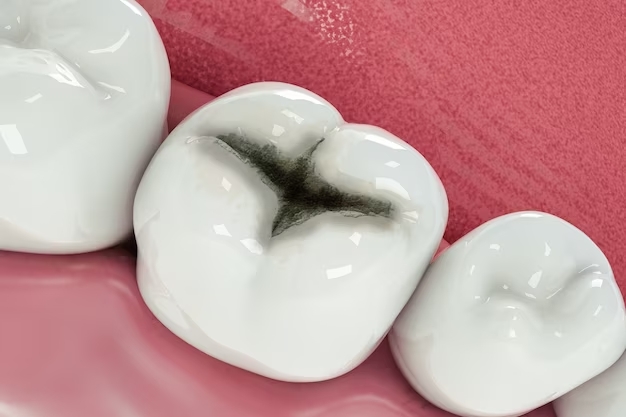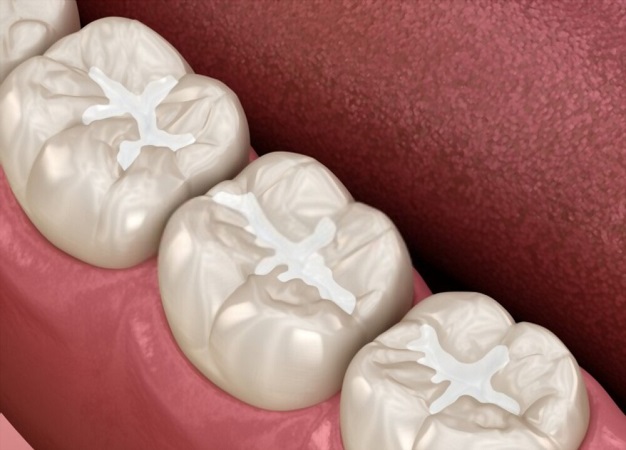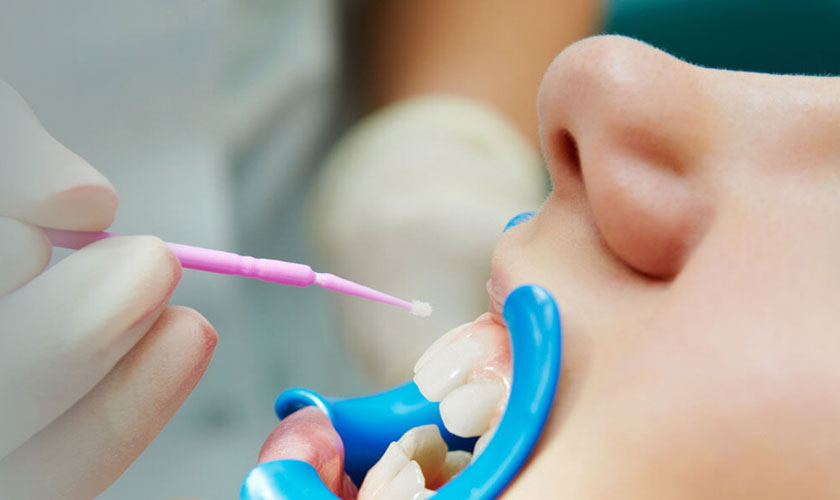Are you tired of constantly battling cavities and tooth decay? It’s time to take preventive measures with the use of dental sealants! These thin protective coatings are a game-changer in dentistry, providing a barrier for your teeth against harmful bacteria. Keep reading to discover why dental sealants are essential for preventing cavities and how they can benefit your oral health in the long run.
Dental Sealants: What Are They?
Dental sealants are a thin, protective coating applied to the teeth’ surface. They are typically used on molars and premolars, as these teeth have deep grooves and pits that can easily trap food particles and bacteria. Dental sealants act as a barrier between the tooth enamel and harmful substances that can cause cavities.
Sealants are made from plastic or other dental materials, and they come in different colors to match the color of your natural teeth. They are completely safe for both children and adults, with no known side effects.
The process of applying dental sealants is quick and painless. First, the dentist will clean and dry the teeth being treated. Then, they will apply an acid solution to roughen up the surface of the tooth so that the sealant can adhere more effectively. They will paint the sealant material in liquid form before hardening it with a special light.
Dental sealants are an effective preventative measure against cavities – especially for those who may be prone to developing them due to poor oral hygiene or dietary habits. By forming an impenetrable shield over vulnerable areas of your teeth surfaces, you’ll enjoy additional protection against decay-causing bacteria for many years to come!
The Causes Of Cavities
Cavities, also known as tooth decay, are caused by a combination of factors.
- The most common cause of cavities is poor oral hygiene. When we eat sugary or starchy foods that stay on our teeth for too long, they can form plaque and feed the bacteria in our mouths. This leads to the production of acid which attacks the tooth enamel.
- Another cause of cavities is dry mouth. Saliva plays an essential role in neutralizing harmful acids produced by bacteria in our mouths. If you have a dry mouth due to certain medical conditions or medication side effects, your risk of developing cavities increases.
- Furthermore, genetics can play a role in cavity formation because some people may have weaker tooth enamel than others.
- Frequent snacking and sipping on sugary drinks throughout the day can increase your risk of developing cavities because it continuously exposes your teeth to sugar and acid attacks.
To prevent cavity formation, it is crucial to maintain good oral hygiene habits such as brushing twice daily with fluoride toothpaste and flossing daily. Additionally, reducing sugary food intake and scheduling regular dental check-ups can go a long way toward preventing cavities from forming.
The Types Of Dental Sealants
Dental sealants come in two main types: resin-based and glass ionomer. Resin-based sealants are the most commonly used type. They’re made of a plastic material that’s applied to the chewing surface of teeth, typically molars and premolars.
Glass ionomer sealants are less common but can be useful for specific situations. These sealants are made from a combination of acrylic acid and glass powder, which creates a strong bond with the tooth enamel.
Another type of dental sealant is fluoride varnish. This liquid is painted onto the teeth and acts as both a protective barrier against cavities and a source of fluoride for strengthening tooth enamel.
Each type has its own set of advantages and disadvantages, so it’s important to talk to your dentist about which option is best for you or your child.
Regardless of which type you choose, dental sealants can provide an extra layer of protection against cavities by sealing off deep grooves where bacteria can accumulate. With proper care, they can last up to 10 years or more before needing replacement.
The Benefits Of Dental Sealants
Dental sealants are a preventive measure that helps to protect the teeth from cavities. The benefits of dental sealants include their ability to provide long-lasting protection against tooth decay and reduce the need for more extensive dental work down the line.
1. Effectiveness-
One of the key advantages of dental sealants is their effectiveness in preventing cavities, especially in hard-to-reach areas such as molars and premolars. These back teeth have deep grooves and fissures where food particles can accumulate, making them vulnerable to bacteria buildup which leads to tooth decay. By applying a thin layer of resin over these surfaces, dental sealants form an effective barrier that prevents plaque and food particles from settling into those nooks and crannies.
2. Affordability
Another benefit of dental sealants is their affordability compared to other more complex procedures like fillings or root canal therapy. Sealant application is non-invasive, painless, quick, and cost-effective when compared with expensive treatments required for advanced stages of tooth decay.
It’s important to note that using dental sealants doesn’t replace good oral hygiene habits such as brushing twice daily with fluoride toothpaste along with flossing once daily. Dental care professionals recommend incorporating both approaches together for optimal results in keeping your mouth healthy.
Choosing a preventative treatment like dental sealant can help maintain excellent oral health while avoiding costly repairs down the road!
How To Apply A Dental Sealant
Applying dental sealants is a quick and painless process that a dentist or hygienist can do. The first step is to clean the teeth thoroughly, removing any plaque or debris. Then, an etching gel will be applied to the tooth surface for a few seconds before being rinsed off.
Next, the dental sealant material is applied to the tooth in liquid form and then hardened with a special light. This creates a protective barrier over the grooves and pits of the teeth where cavities are most likely to occur.
It’s important to note that dental sealants are only effective if they’re properly maintained. Regular brushing and flossing will help keep them in good condition, but it’s also recommended to have them checked at each visit to your dentist.
Dental sealants can last up to 10 years with proper care, making them an excellent investment in oral health. By preventing cavities from forming on back teeth, you’ll save time and money on future dental treatments.
Applying dental sealants is an easy way for children and adults to protect their teeth from decay. Talk with your dentist today about whether this treatment option might be right for you!
The Bottom Line
If you’re interested in getting dental sealants for yourself or your children, speak with our Berwyn dentist about whether they would be a suitable option for you. Remember also to maintain good oral hygiene practices such as brushing twice daily, flossing regularly, and scheduling regular check-ups with your dentist.
Taking these simple steps towards preventing tooth decay through the use of dental sealants along with practicing good oral hygiene habits gives us all the tools we need to ensure our teeth remain healthy and strong throughout our lives.





